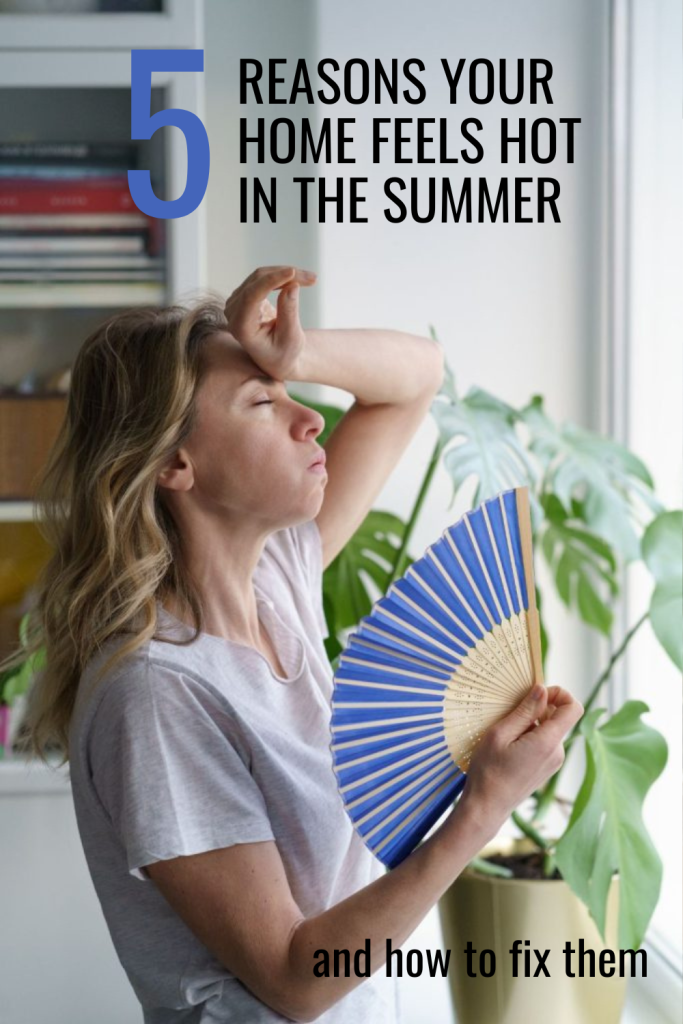Summer is here, and it’s time to relax and soak in the sun. While it’s enjoyable to spend time outdoors, sometimes, we just want to chill indoors. If your home feels hotter than usual during the summer, it’s time to investigate and find solutions to enjoy that perfect indoor temperature.
Here are five common reasons why your home feels hot in the summer and what you can do to fix them.

You might also like this post: How to Stay Cool on a Hot Summer Day
Leaking and Inadequate Insulation: A Sneaky Heat Culprit
Old and damaged insulation can be one of the key reasons for a hot home during the summer months. If your insulation is inefficient or has become compromised due to leaks or moisture, it won’t keep the heat out effectively, even if your AC is on.
Check your attic and walls for any signs your home lacks adequate insulation. Also, look for damage. Then, replace your insulation with a more efficient, heat-resistant material if necessary. You’ll immediately notice the difference in your home’s temperature and potentially save on energy bills.
Inefficient Cooling System: Time for a Checkup
An outdated or poorly functioning cooling system struggles to keep up with the soaring temperatures. It’s crucial to maintain your air conditioner by replacing filters, checking for leaks, and scheduling regular maintenance with a professional.
If your system is beyond repair or too old, consider investing in a new energy-efficient model that’ll keep your home cool while using less energy.
Let’s Talk Windows: Choosing the Right Glass Matters
Heat can easily seep through your windows, especially if you have single-pane glass. To reduce the heat transfer, consider upgrading to double-glazed windows or applying a reflective film to the existing glass. As a bonus, double-glazed windows help improve insulation and reduce outside noise.
Trapped Heat: Ventilation Is Key
This point may seem to oppose the ones about insulation and windows. However, it’s also true that if your home lacks proper ventilation, hot air will become trapped inside, potentially resulting in a stuffy and uncomfortable atmosphere.
You can improve your home’s air circulation by installing exhaust fans, incorporating more natural cross-ventilation, or using ceiling fans to move the air around. Keeping your blinds and curtains closed during the hottest hours can also help prevent heat accumulation.
Overworked Appliances: Unplug and Chill
Lastly, consider the heat that your appliances and electronics produce. Ovens, computers, and televisions generate heat while in use, contributing to a hotter home. Try using appliances like ovens less frequently during hot days, and unplug devices when you’re not using them. These simple habits will help reduce the heat in your home and keep it cooler.
By tackling these five key reasons your home feels hot in the summer, you’ll be on your way to creating a more comfortable house. Then, you can kick back, relax, and embrace the summer season in a perfectly chilled sanctuary.
Leave a Reply